Sports
Faster, higher, smaller: Europe’s ‘tiny Olympics’ you’ve probably never heard of before
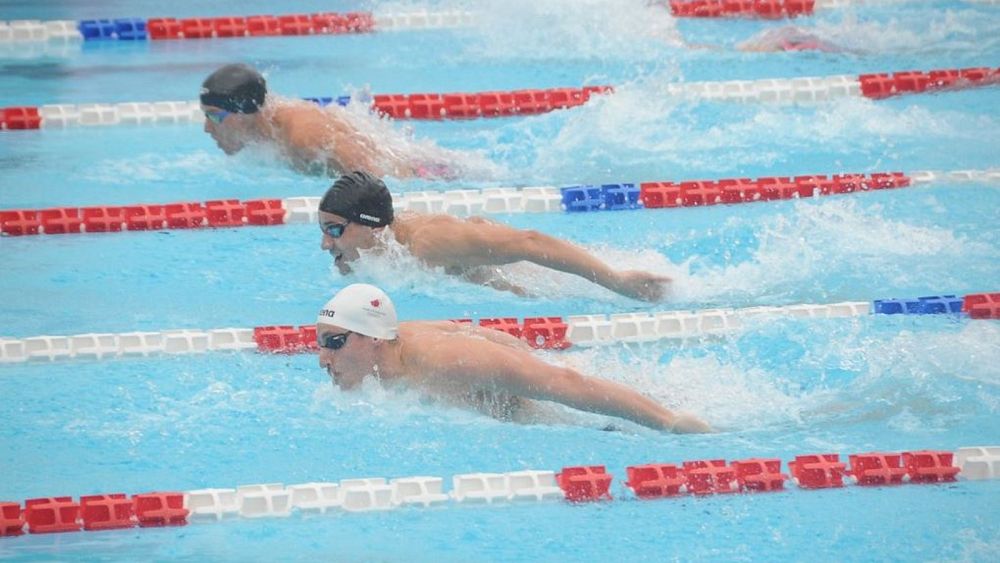
For Magaly Meynadier, next month will not only be a shot at redemption following a long recovery, but a “special” chance to don the national jersey and represent her nation.
Meynadier, now 31 and an integral part of the Luxembourg women’s basketball squad, still remembers the first time she paraded with fellow athletes while thousands of fans cheered.
It was at the Games of Small States of Europe (GSSE), a biennial sporting event featuring nine small European sovereign states.
“When it [GSSE] happened in Luxembourg, we were in the big football stadium and we all had to go around and people were cheering for us,” Meynadier tells Euronews, reminiscing about her first games in 2013 as a part of the gold medal-winning side.
Representing one’s nation is a great achievement, even more so when it comes to countries with smaller populations, which can be significantly disadvantaged in major global tournaments.
That is the case with Malta, Iceland, Liechtenstein, San Marino, Montenegro, Cyprus, Andorra, Monaco, and Meynadier’s Luxembourg – the nine nations that will show up in Malta in May to compete in the 19th GSSE.
‘The Tiny Olympics’
Spots at the Olympics come at a premium and the competition to win is fierce. Only a few countries manage to qualify with full squads, and can end up dominating the medals tally.
For nations with a limited talent pool to work with, qualifying for the sporting gala is tough, and reaching the podium even more of a long shot.
And that’s where the GSSE comes in.
Founded by eight independent Olympic committees in 1984, the rules to participate in the games are simple – an Olympic committee has to be independent, a member of the European Olympic Committee and should represent nations with populations of less than a million.
Montenegro joined in 2009 with the Olympic committees of the Vatican City and Faroe Island are actively seeking to tick the boxes to join the mix.
In addition to having a handful of Olympic sports, the games also follow similar opening ceremony rituals to their ‘full-sized’ Olympic games: with a Parade of Nations, artistic displays, and speeches.
But that is not the only reason why competing athletes prefer to term it the “tiny Olympics.”
“Throughout the entire process of preparing, racing and being there, the Olympic spirit shines bright and that’s what makes it special,” Icelandic swimmer Anton McKee tells Euronews.
Mckee, 29, has competed in multiple GSSEs over the years and won 10 medals in the 2015 games held in Iceland.
“The most special thing is that for many athletes from countries that are underrepresented, it’s their time to shine,” he adds.
The platform to step-up
Despite the affable nature of the games, the GSSE is becoming more competitive.
“Now, most countries send athletes to win medals rather than just to participate. In the beginning, it was different. But now it is definitely to compete for medals,” Julian Pace Bonello, President of the Maltese Olympic Committee, tells Euronews.
By providing a platform for athletes to compete, the GSSE plays a part in stepping up the level of the competing countries. San Marino’s heroics at the Tokyo Olympics, winning two silvers and a bronze to become the smallest country by population to win an Olympic medal, is a testament to that.
“We never say that the GSSE is the end of the road. We say it’s the stepping stone to being able to compete at a higher level,” Bonello adds.
As an athlete, McKee agrees that the GSSE helped him in competing in several international championships, including the Summer Olympics: “GSSE was one of the breakout meets for me as an athlete. Being able to get the medals by going up against swimmers that I thought I couldn’t beat was proving to myself that I was one of the best swimmers of that calibre.”
The sense of competitiveness also reflects in the medal tally. McKee’s Iceland has won the most gold medals, dominating aquatic and athletic sports.
More than just the games
As the Maltese capital of Valletta prepares to host its third GSSE, the organising committee is keen on tapping into the positive impacts that sporting events are capable of bringing.
Facilities that were made for the 2003 games in Malta bolstered the country’s sporting capabilities and helped to spark interest among the locals.
“When it’s your turn to host the games, you have the government come on board. You’ll get additional funding, you’ll get facilities upgraded, you get new facilities which are not only for the games, they will be used after the games are over,” MOC president Bonello explains.
The biennial host cities also take the opportunity to exhibit the local culture and national identities. The mascot for the 2023 games, Lampuka, is derived from Puka, a dorado fish native to the waters of Malta. The 2019 games in Montenegro had Smokvić, the energetic fig as the mascot with the slogan “How Big We Are”.
Similarly, there are positives for athletes too.
The spotlight on the Luxembourger women’s basketball team significantly increased following the 2013 triumphant home games. For a team with many part-time athletes, Magaly Meynadier says the interest has helped the team compete and increased the participation of women in different sports.
“After what we did in Luxembourg, we could see that the people were coming to actually watch us when we were playing at home. It is not the only gold that we’ve won, but it was very nice to see the growing interest in the women’s basketball team,” she says.
‘You play for the team’
Francesco Sansovini vividly remembers the moments he became a GSSE gold medalist in 2019.
Sansovini, then 19, ran the final leg of the men’s 4×100 metre relay, with a strained hamstring threatening both his performance and confidence. The Sammarinese sprinted despite the stinging pain, with the thought of bringing the medal home.
He ended up crossing the finishing line first, and the gold medal hangs in his bedroom.
“Every morning, I see the gold medal and aspire to do better in Malta,” he says.
Since countries show up with full squads at the GSSE, single athletes like Sansovini also compete in relays – a feat made impossible due to quotas in other major tournaments.
Like San Marino, GSSE Iceland also gets to send full rosters, and that is what makes the games particularly special for Anton McKee.
“In GSSE, the relays are one of the most exciting aspects – racing with your teammates and racing against other countries. There’s something special about it. You forget your own ego and aspirations. You just want to win a race as fast as you can for your team and your country,” he says exuberantly.
Sports
Marc Marquez no longer wants to make mistakes and heralds change
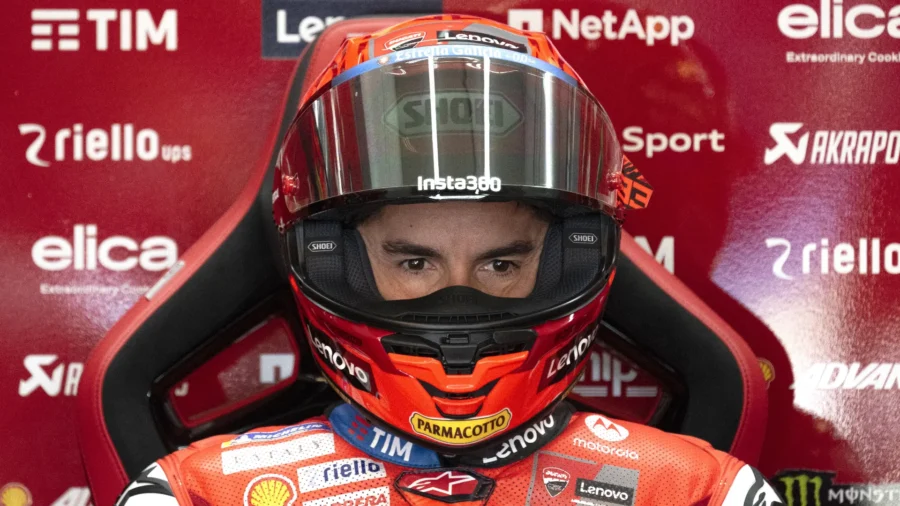
Marc Marquez knows he is dominating this year but he has also made several heavy mistakes: “They are my weakness, I will try to handle everything differently, but I made them all on Sunday and I have to avoid them if I want to fight for the championship. I will have to think about the races where I didn”t score points.
In Aragon he will be the favorite: “Dominating here like last year will be difficult since it was raining, it will be a faster weekend, with a more rubberized track and therefore more difficult. In Silverstone I wanted to defend the points lead, here I will try to fight for the victory. My feelings compared to last Gp are better”.
In the press conference Marco Bezzecchi, winner at Silverstone, also spoke: “It was great, I missed the podium. The bike gives very good sensations, I can’t wait to start again here and try to be competitive. We made a lot of steps forward, because we were also in Jerez and Le Mans but I made some mistakes. It might be difficult to repeat, but we want to be continuous”.
Sports
Marc Marquez wants to make no more mistakes and heralds news
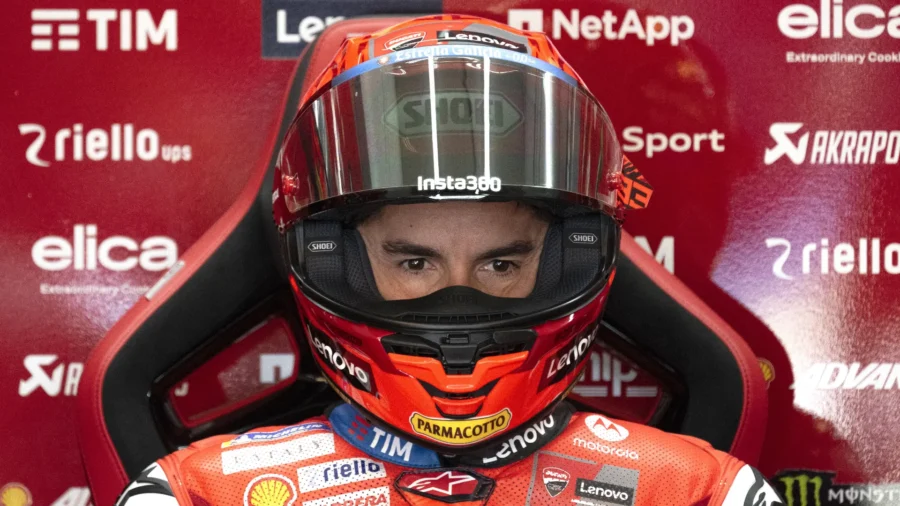
Marc Marquez knows he is dominating this year, but he has also made several heavy mistakes: “They are my weakness, I will try to handle everything differently, but I made them all on Sunday and I have to avoid them if I want to fight for the championship. I will have to think about the races where I did not score points”.
In Aragon he will be the favorite: “Dominating here like last year will be difficult since it was raining, it will be a faster weekend, with a more rubberized track and therefore more difficult. In Silverstone I wanted to defend the points lead, here I will try to fight for the victory. My feelings compared to last Gp are better”.
In the press conference Marco Bezzecchi, winner at Silverstone, also spoke: “It was great, I missed the podium. The bike gives very good sensations, I can’t wait to start again here and try to be competitive. We made a lot of steps forward, because we were also in Jerez and Le Mans but I made some mistakes. It might be difficult to repeat, but we want to be continuous”.
Sports
Marc Marquez no longer wants to make mistakes and is ready for a change
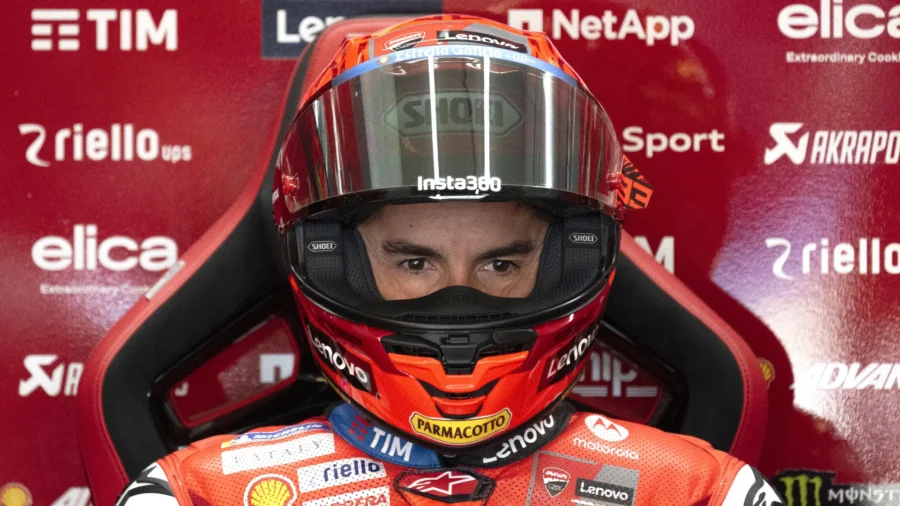
Marc Marquez knows he is dominating this year but he has also made several heavy mistakes: “They are my weakness, I will try to handle everything differently, but I made them all on Sunday and I have to avoid them if I want to fight for the championship. I will have to think about the races where I didn”t score points.
In Aragon he will be the favorite: “Dominating here like last year will be difficult since it was raining, it will be a faster weekend, with a more rubberized track and therefore more difficult. In Silverstone I wanted to defend the points lead, here I will try to fight for the victory. My feelings compared to last Gp are better”.
In the press conference Marco Bezzecchi, winner at Silverstone, also spoke: “It was great, I missed the podium. The bike gives very good sensations, I can’t wait to start again here and try to be competitive. We made a lot of steps forward, because we were also in Jerez and Le Mans but I made some mistakes. It might be difficult to repeat, but we want to be continuous”.
-
EU & the World5 days ago
Aurora Borealis Forecast: Where & When to See the Northern Lights Tonight
-
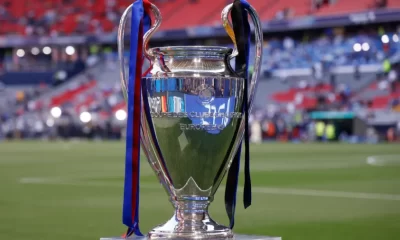
 Sports6 days ago
Sports6 days agoChampions League Final 2024-2025: PSG-Inter, official lineups
-
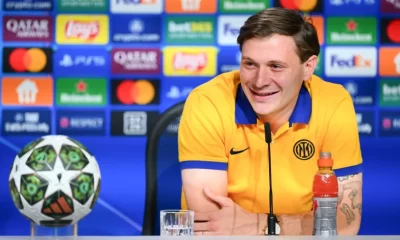
 Sports7 days ago
Sports7 days agoPSG-Inter, Nicolò Barella jokes about Gianluigi Donnarumma
-
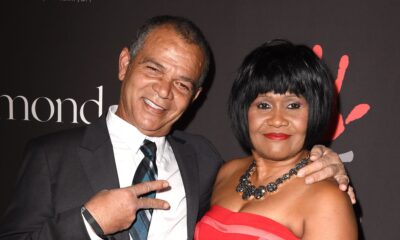
 EU & the World6 days ago
EU & the World6 days agoRihanna’s Parents: About Her Late Dad Ronald Fenty & Mom Monica Braithwaite
-
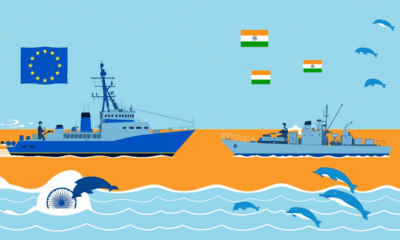
 Politics7 days ago
Politics7 days agoEU and India Forge Deeper Maritime Ties with Historic Joint Naval Exercise in the Indian Ocean
-
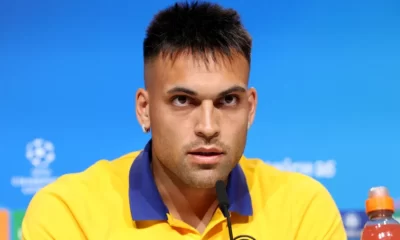
 Sports7 days ago
Sports7 days agoPSG-Inter, Lautaro Martinez unveils recipe for finals
-

 EU & the World6 days ago
EU & the World6 days agoLoretta Swit’s Net Worth: How Much Money the ‘M*A*S*H’ Alum Had
-
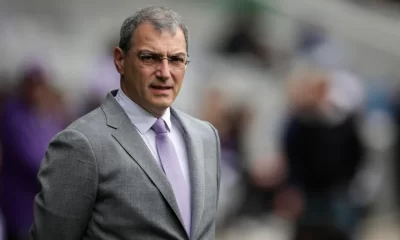
 Sports5 days ago
Sports5 days agoOfficial: Damien Comolli new general manager of Juventus.









